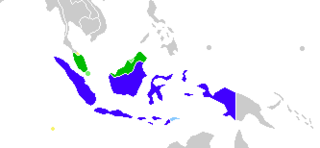A pension is a fund into which a sum of money is added during an employee's employment years, and from which payments are drawn to support the person's retirement from work in the form of periodic payments. A pension may be a "defined benefit plan" where a fixed sum is paid regularly to a person, or a "defined contribution plan" under which a fixed sum is invested and then becomes available at retirement age. Pensions should not be confused with severance pay; the former is usually paid in regular installments for life after retirement, while the latter is typically paid as a fixed amount after involuntary termination of employment prior to retirement.

In the United States, Social Security is the commonly used term for the federal Old-Age, Survivors, and Disability Insurance (OASDI) program and is administered by the Social Security Administration. The original Social Security Act was signed into law by President Franklin D. Roosevelt in 1935, and the current version of the Act, as amended, encompasses several social welfare and social insurance programs.

The U.S. Congress passed the Tax Reform Act of 1986 (TRA) to simplify the income tax code, broaden the tax base and eliminate many tax shelters. Referred to as the second of the two "Reagan tax cuts", the bill was also officially sponsored by Democrats, Richard Gephardt of Missouri in the House of Representatives and Bill Bradley of New Jersey in the Senate.

Workers' compensation is a form of insurance providing wage replacement and medical benefits to employees injured in the course of employment in exchange for mandatory relinquishment of the employee's right to sue their employer for the tort of negligence. The trade-off between assured, limited coverage and lack of recourse outside the worker compensation system is known as "the compensation bargain". One of the problems that the compensation bargain solved is the problem of employers becoming insolvent as a result of high damage awards. The system of collective liability was created to prevent that, and thus to ensure security of compensation to the workers. Individual immunity is the necessary corollary to collective liability.
The Fair Deal was an ambitious set of proposals put forward by U.S. President Harry S. Truman to Congress in his January 1949 State of the Union address. More generally the term characterizes the entire domestic agenda of the Truman administration, from 1945 to 1953. It offered new proposals to continue New Deal liberalism, but with the Conservative Coalition controlling Congress, only a few of its major initiatives became law and then only if they had considerable GOP support. As Richard Neustadt concludes, the most important proposals were aid to education, universal health insurance, the Fair Employment Practices Commission, and repeal of the Taft–Hartley Act. They were all debated at length, then voted down. Nevertheless, enough smaller and less controversial items passed that liberals could claim some success.
The Federal Insurance Contributions Act is a United States federal payroll contribution directed towards both employees and employers to fund Social Security and Medicare—federal programs that provide benefits for retirees, people with disabilities, and children of deceased workers.
Self-employment is the state of working for oneself rather than an employer.
An independent contractor is a natural person, business, or corporation that provides goods or services to another entity under terms specified in a contract or within a verbal agreement. Unlike an employee, an independent contractor does not work regularly for an employer but works as and when required, during which time they may be subject to law of agency. Independent contractors are usually paid on a freelance basis. Contractors often work through a limited company or franchise, which they themselves own, or may work through an umbrella company.
In law, vesting is to give an immediately secured right of present or future deployment. One has a vested right to an asset that cannot be taken away by any third party, even though one may not yet possess the asset. When the right, interest, or title to the present or future possession of a legal estate can be transferred to any other party, it is termed a vested interest.

The U.S. Railroad Retirement Board (RRB) is an independent agency in the executive branch of the United States government created in 1935 to administer a social insurance program providing retirement benefits to the country's railroad workers.
The Internal Revenue Code (IRC), formally the Internal Revenue Code of 1986, is the domestic portion of federal statutory tax law in the United States, published in various volumes of the United States Statutes at Large, and separately as Title 26 of the United States Code (USC). It is organized topically, into subtitles and sections, covering income tax, payroll taxes, estate taxes, gift taxes, and excise taxes; as well as procedure and administration. Its implementing agency is the Internal Revenue Service.

An S corporation, for United States federal income tax, is a closely held corporation that makes a valid election to be taxed under Subchapter S of Chapter 1 of the Internal Revenue Code. In general, S corporations do not pay any income taxes. Instead, the corporation's income or losses are divided among and passed through to its shareholders. The shareholders must then report the income or loss on their own individual income tax returns.

In the United Kingdom reserved matters and excepted matters are the areas of government policy where the UK Parliament had kept the exclusive power (jurisdiction) to make laws (legislate) in Scotland, Wales and Northern Ireland.

The United States federal civil service is the civilian workforce of the United States federal government's departments and agencies. The federal civil service was established in 1871. U.S. state and local government entities often have comparable civil service systems that are modeled on the national system, in varying degrees.
Internal Revenue Service (IRS) tax forms are forms used for taxpayers and tax-exempt organizations to report financial information to the Internal Revenue Service of the United States. They are used to report income, calculate taxes to be paid to the federal government, and disclose other information as required by the Internal Revenue Code (IRC). There are over 800 various forms and schedules. Other tax forms in the United States are filed with state and local governments.
Welfare in France includes all systems whose purpose is to protect people against the financial consequences of social risks.
Indian labour law refers to laws regulating labour in India. Traditionally, Indian governments at federal and state level have sought to ensure a high degree of protection for workers, but in practice, this differs due to form of government and because labour is a subject in the concurrent list of the Indian Constitution.
The Commonwealth of Puerto Rico is a territory of the United States and Puerto Ricans are US citizens. However, Puerto Rico is not a US state. Because of this, only Puerto Rican residents who are government employees, and those with income sources outside of the territory, pay federal income tax. All other employers and employees pay no federal income taxes. However, residents of Puerto Rico and businesses operating in Puerto Rico do pay some federal taxes, and the commonwealth's government has its own taxes as well.

The Philippine Social Security System is a state-run, social insurance program in the Philippines to workers in the private, professional, and informal sectors. SSS is established by virtue of Republic Act No.1161, better known as Social Security Act of 1954. This law was later amended by Republic Act No. 8282 in 1997.
Mayo Foundation v. United States, 562 U.S. 44 (2011), is a United States Supreme Court case in which the Court upheld a Treasury Department regulation on the grounds that the courts should defer to government agencies in tax cases in absence of an unreasonable decision on the part of the agency.










